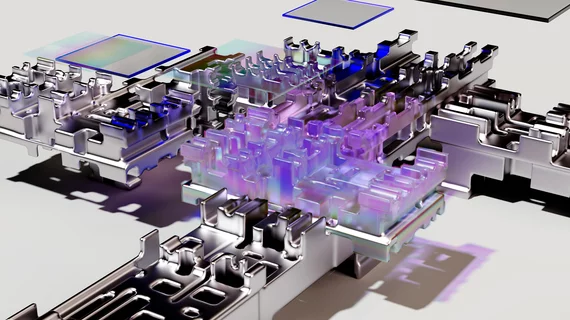Industry Watcher’s Digest
Buzzworthy developments of the past few days.
- To each health system its own ambient AI notetaker. Ascension Saint Thomas in middle Tennessee likes Suki for clinical documentation duties. Ochsner Health is partial to DeepScribe. Kaiser Permanente favors Abridge. And at Ohio State University’s Wexner Medical Center, a physician tells why he and colleagues are making a go of it with Microsoft DAX. “We’re making more eye contact, and our body posture shifts away from the computer and faces the patient, says Harrison Jackson, MD. “We’re able to pick up on more nonverbal cues.” The anecdotal rundown of AI scribal preferences and experiences is from MedCity News. Read the rest.
- And here’s a doctor for whom ambient AI has been nothing short of a joy-bringer. “For me, applying AI has been magical,” writes Alicia Jacobs, MD, a longtime practitioner of family medicine and academic physician leader at UVM Medical Center in Vermont. Using ambient AI to auto-generate clinical notes, she asserts, “we can help save the primary-care workforce.” Save it from what? Burnout, attrition, career boltings and other bad things. A local outlet published the piece Aug. 25.
- She’ll get no argument from this physician/attorney. The possibilities opened by ambient AI are “expansive,” writes Sai Balasubramanian, MD, JD, in Forbes. “From virtual assistants to data-driven insight generation capabilities, ambient AI is a growing field in the world of artificial intelligence more broadly, and has significant potential to transform healthcare for patients and providers alike.”
- A free online symptom checker has made an eye-popping difference in population health. Its purveyor says so, anyway. Tokyo-based Ubie estimates its platform has contributed patient quality-adjusted life years by around 27,000 years while creating approximately $1 billion in economic value. And that’s just over a three-year period ending in 2024. The findings are from Japan only, and the company acknowledges that the approximate impact “should be viewed as a reference point” in light of “the evolving nature of impact measurement.”
- What are Lyapunov functions and why are they here? They’re mathematical tools that help ensure stability in dynamic systems, and they could be game changers for healthcare AI. So explain research physician L. Joseph Parker, MD, and anesthesiologist Neil Anand, MD, in an intellectually challenging piece at KevinMD. Intelligence—whether natural or artificial—“isn’t just crunching numbers,” the duo write. “[I]t’s making sense of incomplete data, inferring from the unknown and understanding context.” NASA missions rely on precise calculations, they remind, “and that same need for stability and precision is crucial in healthcare AI.” Which is where Lyapunov functions can make a difference. How? Read and learn.
- The Department of Energy is concerned about AI’s mammoth appetite for, well, energy. The agency’s advisory board is worried enough that it wants DOE to build a “data-center-scale AI testbed.” With this the agency would study ways to drain less juice from the grid. The board makes the recommendation in a report recently sent to Energy Secretary Jennifer Granholm. Axios concisely conveys the gist.
- A Canadian startup creatively named Noze has invented a medical breathalyzer powered by AI. The device, DiagNoze, is said to identify diseases in much the same way the one used by police nails people for drunk driving. Slovenia-based City magazine says the technology “could radically improve access to health services, especially in underprivileged regions where rapid diagnostics are crucial.”
- Professional technology tinkerers have used AI to realistically depict the face of Jesus based on the image in the Shroud of Turin. I find the portrait oddly affecting even though it kind of calls to mind the always brilliant if frequently hung-over Eagles up to their Hotel California period. See what you think.
- Recent research in the news:
- Mayo Clinic: 3D body volume scanner uses AI to help predict metabolic syndrome risk
- Stanford: ChatGPT shows promise in answering patients’ questions to urologists
- University of Waterloo: Building new bones with help from 3D printing
- Mayo Clinic: 3D body volume scanner uses AI to help predict metabolic syndrome risk
- AI funding news of note:
- From AIin.Healthcare’s news partners:
- Cardiovascular Business: Better than BMI? 3D body scanner uses AI to measure metabolic health
- Health Imaging: Nearly half of FDA cleared AI medical devices have not been validated on patient data
- Radiology Business: AI draws conclusions from interventional radiology adverse events data, helping docs design interventions
- Cardiovascular Business: Better than BMI? 3D body scanner uses AI to measure metabolic health

